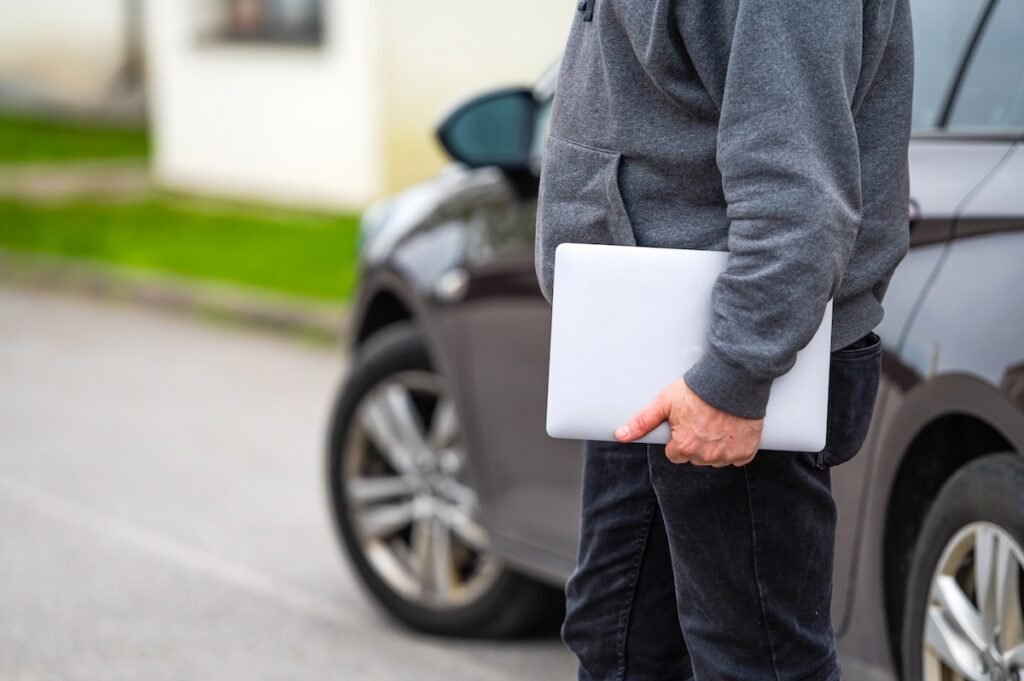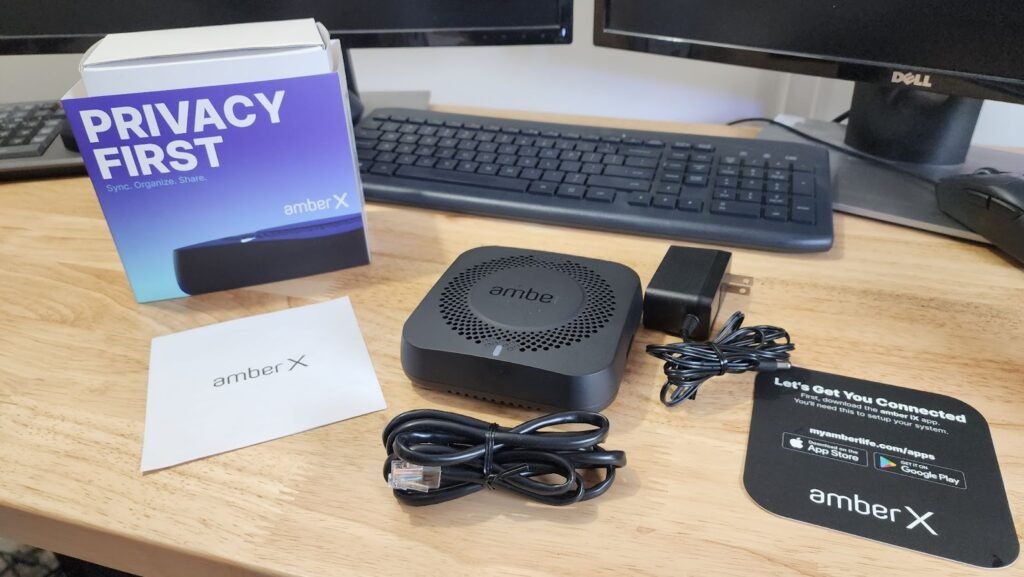You’re addicted to your phone and we have the science to prove it! Not really…but sort of. We all know we’re a little too reliant on our phones. We’ve become accustomed to using them for everything, from checking the time to ordering takeout. Many of us don’t think we’re addicted to our phones, but that’s not what the science says. Some of you right now are probably thinking, ‘I’m not addicted, I can stop anytime I want to!’ But can you really, though?. In fact, did you know that science says you’re even more addicted to your phone than you realize? We recently read a study and the science says it might be worse than you think…
What Does Science Say About Our Phone Addictions?
We recently stumbled across a study commissioned by HMD Global about smartphones and our emotional responses to not having them. What we read was really shocking. On the surface level after reading the findings, I thought, ‘No way this is true”, but when I truly asked myself if I could go one day without my phone, I can kind of understand why some might have a response like those mentioned in a study of smartphone users. Here are some of the shocking highlights that I just found fascinating from this study of 2,000 smartphone users:
- 3 in 10 claims they never leave their house without their phone (I have to believe it’s more)
- Most people are completely dependent on their smartphones for help
- 13% admit they can’t make it to work without a phone giving them directions! This one makes me laugh
- Nearly 30% admit they are completely reliant on their phones for directions. Again, I think this is higher.
- More than half believe running out of battery is a “nightmare scenario”.
- One in eight people admits that a dying battery gives them anxiety.
Before you read on, revisit those highlights
Tips To Save Your Smartphone Battery Life
We all know how frustrating it is when our smartphone battery dies at the most inopportune time. And as this science suggests, it is causing anxiety in individuals. We don’t want that. Perhaps you are spending too much time on your phone and that’s the chief reason why the battery is dying. But…we still feel an obligation to help you so you don’t feel anxiety because of technology. To help you avoid that situation, here are some tips on how to save your battery life. There are really simple tips that won’t take a ton of time or know-how to accomplish.
Turn Off Location Services When You Don’t Need Them
In all seriousness, why is it important that Candy Crush knows my location? In most Apple and Android phones, finding your location settings and disabling them by each app is really easy.
Dim Your Screen Brightness As Low As Possible
This is one most people don’t like to do, but it can save you quite a bit of time on your battery. Most people at first don’t like the dimmed screen but give it a try for a few hours and you won’t even know the difference. If you do notice a difference, then increase the brightness just a little bit. You’ll be surprised at how used to the dimmed brightness you’ll become accustomed to after a while.
Feel The Vibrations! Not Really…Turn Them Off
Despite what Mark Mark says about good vibrations, they’re not good for your battery life. Unless you absolutely have to have them, I’d highly suggest saving a ton of battery life by turning them off. Disable vibrations and sounds when you don’t need them. Ever since I invested in a smartwatch I rarely have any sounds, vibrations, or notifications set on my phone. It all comes through my smartwatch. Even if you don’t have a smartwatch, disable the vibrations and opt-in for a less intrusive ringtone for calls and texts.
Uninstall Apps You’re Not Using
Depending on what app it is, you can save some much-needed battery life by uninstalling apps you don’t need, especially if those apps are tracking your location. What happens when you uninstall these pesky apps you don’t use? It results not only in improved battery life, but you’ll get better performance from your phone because you’ll have fewer processes being executed.
Update Your Phone’s Software When New Versions Are Released
One of the most important features smartphone makers are astutely aware of is battery life. There has been numerous consumer research and market research performed exhaustively on this topic of battery life and it is a high priority for users and phone manufacturers. They are always trying to tackle the battery life conundrum through hardware and software. Your smartphone’s software is one area they constantly are trying to improve, not only for user experience but for battery life as well. Updating your software is great for security purposes, but it’s also great for your battery life.
Invest In A Good Pair Of Headphones
I am shocked by how many people make phone calls, watch movies, listen to music, and a list of other things and use their smartphone’s internal speakers. It’s estimated that you lose about twice the power when using your phone’s speakers as opposed to headphones. You’ll drain your phone’s battery faster using those speakers.
DISCOVER: How To Setup Screen Time For Your iPhone
Signs You’re Addicted To Your Smartphone
This is a real issue. And it’s tough to balance between the feelings of “Am I addicted?” versus “I use my phone a lot for business and functioning in life.” So it’s not necessarily how much we check our phones and use them all day as much as how we feel towards the technology and our devices. For example, I just checked my usage stats on my smartphone and last week I averaged 94 pickups a day! But I’m a busy guy and the phone is a major part of my work life. On the flip side, if my teen is picking up his phone 100+ times a day, then that’s a different situation.
If you’re constantly checking your phone, even when you’re not expecting a call or text, then you might be addicted to your device. Another telltale sign is if you find yourself using your phone more often than you’d like to admit. If you can’t go a few hours without looking at your screen, then it’s time to take a break and reassess your relationship with your phone. Here are some really important questions to ask yourself. Take a moment to read each one and spend a moment of two really analyzing your emotions as it relates to each question. I’d highly recommend asking the same questions with your family and talking about everyone’s responses:
- Can you go more than a few hours without checking your phone?
- Do you feel anxious or antsy if you’re not using your phone for more than a half-hour?
- Do you spend more time on your phone than you intended to?
- Are you constantly interrupted by notifications from your phone?
- Do phone notifications and time spent cause problems in your personal or professional life?
There are a few ways to cut back on your phone usage. One is to set specific times for when you’ll allow yourself to use it. For example, only allowing yourself to check social media during certain times of the day or week. Another way is to delete apps that you find yourself using too much. So to recap on the signs of phone addiction (in our “You might be a red-neck” voice):
- You might be addicted to your phone if…you can’t go a few hours without checking it.
- You might be addicted to your phone if…you feel anxious when you’re not around it.
- You might be addicted to your phone if…you spend more time on your phone than you do talking to people.
- You might be addicted to your phone if…it’s more important to check your notifications than it is to live your life!
- You might be addicted to your phone if…your phone is a cause for relationship issues in your professional and personal life
How To Build Healthy Habits With Technology
It can be tough to break bad habits and build good ones, but it’s not impossible. Stay positive! Stay determined and diligent. Here are a few tips to help you get started:
Practice Technology Mindfulness
Seriously, this works. I’ve talked with a handful of psychologists who says just the act of being aware of what we are doing can help. Be mindful of your technology usage. Pay attention to when and how often you’re using your devices, and try to make conscious decisions about whether or not you really need to use them.
Create Limitations And Stick To Them
Set limits for yourself. Decide how much time you’re going to spend on your devices each day (or week), and stick to it. There are a lot of apps and Apple’s screen time has this functionality built-in where you can track how much time spent on an app and set limitations.
Create Healthy Alternatives
If you find yourself mindlessly scrolling through social media or watching videos, try substituting those activities with something healthier, like reading, walking, or talking with friends and family members.
Develop Healthy Tech Habits Can Be Hard, But…
Developing healthy habits with technology can be tricky. Sart by taking a look at some simple tips to help us save battery life on our devices (to lessen our anxiety) and be more mindful of our screen time. Once we have those down, we can begin to think about how we want to use technology in our lives. For example, maybe you decide that you want to keep your phone out of the bedroom so you can focus on getting a good night’s sleep or take breaks from social media every hour instead of checking it compulsively throughout the day. Maybe only use apps to help you stay focused for the next week or so. For some, you might need to put on more extreme measures like personal app tracking and management. There are plenty of great apps that block websites or limit your social media use during certain times of the day. Whatever changes you make, just remember that it takes time and practice to form new habits – Rome wasn’t built in a day! And even more important, don’t let technology and your phones get in the way of human interaction. Connect with people in person whenever possible!








